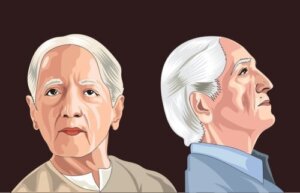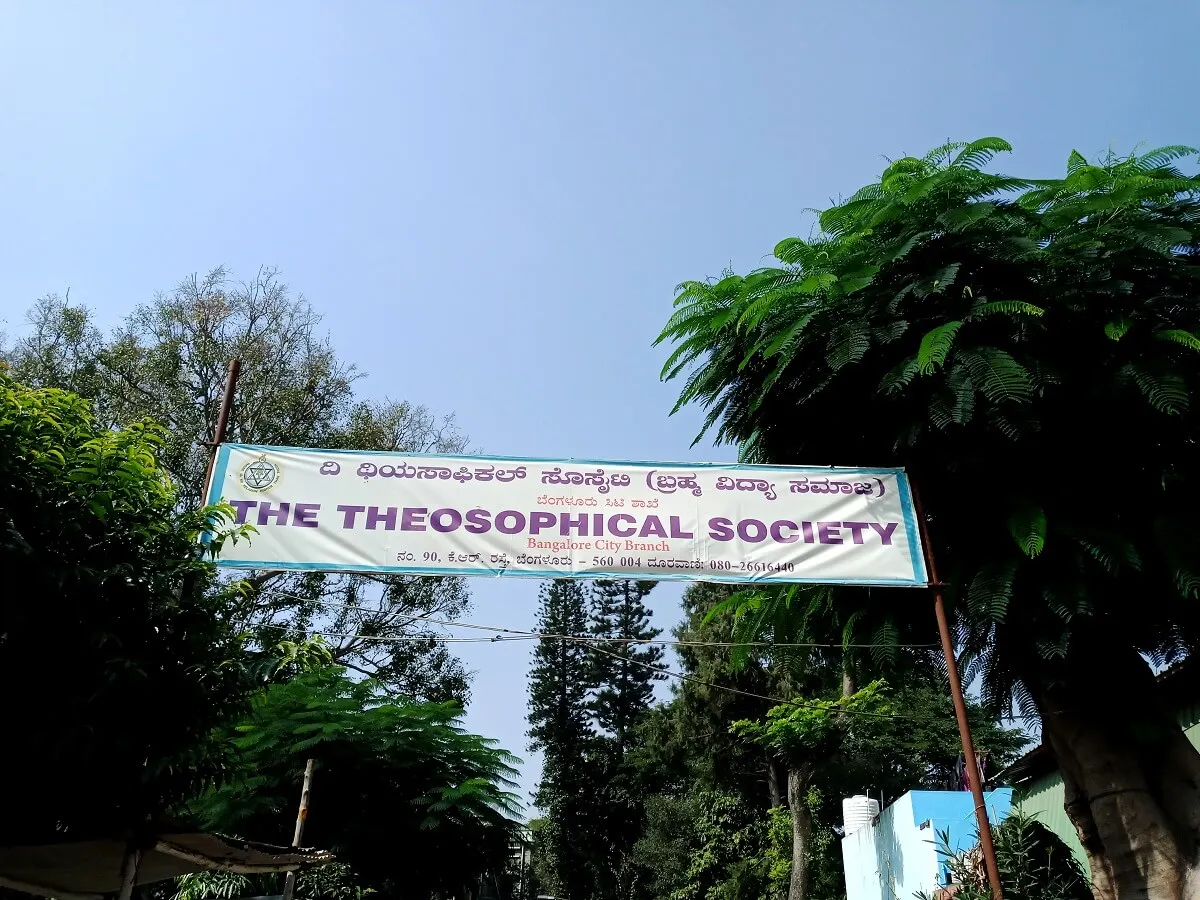Jiddu Krishnamurti: Important Indian Philosopher and His Contributions


Reviewed and approved by the philosopher Maria Alejandra Morgado Cusati
Jiddu Krishnamurti was a renowned Indian-American orator, writer and spiritual philosopher who addressed topics such as mental revolution, the nature of the mind, human relationships, and the purpose of meditation and mental emptiness as a means to achieve positive change in both the individual and society.
His maxim was to advocate the full liberation of man and the world through self-knowledge and detachment from dogmas, religions, castes, and political positions. Below, we’ll bring you his biography and the contributions he made to the philosophical thought of the twentieth century.
Biography of Jiddu Krishnamurti
Jiddu Krishnamurti was born on May 11, 1895, in the city of Madanapelle, in the modern state of Andhra Pradesh, in the south of colonial India. He was the eighth of eleven siblings, of which only six reached adulthood.
His father was Jiddu Narayaniah, who worked as a civil servant in the British administration, and his mother was Sanjeevamma, who claimed to have psychic powers, claiming to have visions, and the ability to see people’s auras.
Jiddu Krishnamurti was very fond of his mother, so her death -when he was barely 10 years old- represented a bitter blow. However, the belief that his mother met with spirits helped him cope with the loss and feel that, in some way, she was still with him.
Krishnamurti was a sensitive and sickly child. Those who knew him said he was also “lazy and dreamy”. In fact, in his childhood, he never excelled in his studies and was considered intellectually handicapped by his teachers.

Discover more in this article: The 12 Laws of Karma and Their Explanation
The “world teacher” and the Theosophical Society
At the end of 1907, the father of the family, Jiddu Narayaniah, retired from his administrative duties. This fact, together with the scarce resources he possessed, forced him to ask for a job at the headquarters of the Theosophical Society, located in the city of Adyar.
The director of the society, Annie Besant, decided to give him a job as assistant to the “secretariat of the esoteric section” after two years of insistence on the part of the man. Therefore, in January 1909, Jiddu Narianiah moved with his four children to a small cottage located on the outskirts of the Society’s complex.
In April 1909, Charles Webster Leadbeater, an influential member of the Theosophical Society, met Krishnamurti at the Adyar River and was amazed by the “most wonderful aura he had ever seen, without a particle of egoism.”
From there, Leadbeater became convinced that the boy would become a spiritual teacher and a great orator. But not only that, but he also believed that Jiddu Krishnamurti was neither more nor less than the “vehicle for Lord Maitreya”. This refers, in theosophical doctrine, to an advanced spiritual entity that periodically appears on Earth as a world teacher to guide the evolution of humanity.
Annie Besant, convinced by Leadbeater’s affirmations, managed to take Jiddu Krishnamurti and his younger brother Nitya (considered his spiritual companion) out of their parental home and took them to live at the headquarters of the Theosophical Society.
From there, both brothers were raised and educated under the tutelage of Besant and Leadbeater. Later, in 1911, they traveled to England where they remained for ten years, following their studies and living an ostentatious life.
The spiritual awakening of Jiddu Krishnamurti
In 1912, Jiddu Krishnamurti traveled with his brother Nitya to California, United States, where he established his residence, because he considered that the climate of the place was the most suitable for his brother’s health, who was suffering from tuberculosis.
From there, the young Krishnamurti began to experience a spiritual awakening -which he himself baptized as “the process”- characterized by episodes of intense physical pain, loss of consciousness, and visions that took him to the forest of India where he spoke of the presence of powerful beings (including Buddha, Maitreya and other masters of the occult hierarchy).
These symptoms came and went for periods of time. And when they subsided, they left Krishnamurti with increased mental clarity or sensitivity. In this regard, Nitya claimed that an emptying of his brother’s consciousness was evident, along with times when he felt a great presence.
As a future world teacher, Krishnamurti continued to maintain a travel schedule to different countries, particularly in connection with conventions of the Theosophical Society. In fact, when his experiences were made public, there was a furor among the followers of theosophy.
In these activities, he was accompanied by his brother. However, on November 13, 1925, in the midst of a storm, his brother died. As a result, Krishnamurti was devastated; he sobbed, wailed, and cried out loud for his brother, who had been his only family and faithful companion since he was separated from his father.
Another article that may interest you: Spinoza’s Philosophy and His View of Nature
Rupture with the Theosophical Society
His recent experiences of spiritual awakening, coupled with the death of his brother, cause Jiddu Krishnamurti to distance himself from the Theosophical Society. New concepts appeared in his talks, discussions, and correspondence, along with an evolving vocabulary that was progressively freed of theosophical terminology.
His new direction reached its peak in 1929 when he rejected attempts by Leadbeater and Besant to continue the Order of the Star (an organization that had been established in 1911 to support Krishnamurti as a future Messiah).
His argument was that truth has no definite course, so no religion or sect can lead us to it. Thus, the one who had hitherto been regarded as “Master of the World” proclaimed that he did not desire followers, but freedom.
He also argued that to be truly free no one could remain locked into a fixed belief.
“Truth, being unlimited, unconditioned, inaccessible by any path, cannot be organized; nor should any organization be formed to guide or coerce people along a particular path.”
Jiddu Krishnamurti
After the break with the Theosophical Society, Jiddu Krishnamurti defended that he had no allegiance to any nationality, caste, religion, or philosophy, and spent the rest of his life traveling the world offering his philosophy.
He presented at conferences on five continents and created foundations in America, India, Spain, United Kingdom, among other places, to spread his ideals and provide education.

Death and contributions
At the age of 90, he gave a lecture at the UN about peace and consciousness, and received the UN Peace Medal in 1984. Jiddu Krishnamurti passed away on February 17, 1986 from pancreatic cancer.
Today, his supporters continue to work through non-profit foundations in India, Britain, and the United States. They also oversee several independent schools based on Krishnamurti’s views on education.
“Education is not the mere acquisition of knowledge, nor collecting and correlating data, but seeing the meaning of life as a whole.”
Jiddu Krishnamurti
His legacy can be found in his books and videos, which are mostly compendiums of his talks and debates, in which Krishnamurti focuses on the cessation of mental activity as thought to reach states of emptiness and observation in which there is no identification.
In such states, he claimed you can experience the sensitivity and grasping of the “instants of life”, without the interference of the mind. This would completely transform human beings in their relationships with themselves, and with everything else. But for this to happen, all movement of thought and all processes of identification would have to cease.
Final reflections
Jiddu Krishnamurti was a spiritual philosopher who wanted to free the world and man from the bonds of the mind and dogmas. For this great thinker, inner and individual work are fundamental elements to achieve peace and full freedom.
All cited sources were thoroughly reviewed by our team to ensure their quality, reliability, currency, and validity. The bibliography of this article was considered reliable and of academic or scientific accuracy.
- Lavoie J. The Theosophical Society: The History of a Spiritualist Movement. Estados Unidos: Universal-Publishers; 2012.
- Williams C. Jiddu Krishnamurti: World Philosopher (1895-1986) : His Life and Thoughts. India: Motilal Banarsidass Publ; 2004.
This text is provided for informational purposes only and does not replace consultation with a professional. If in doubt, consult your specialist.








